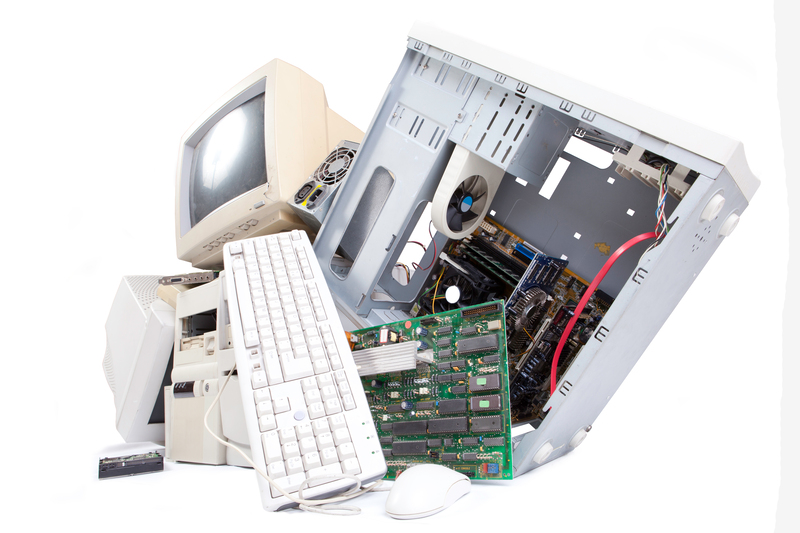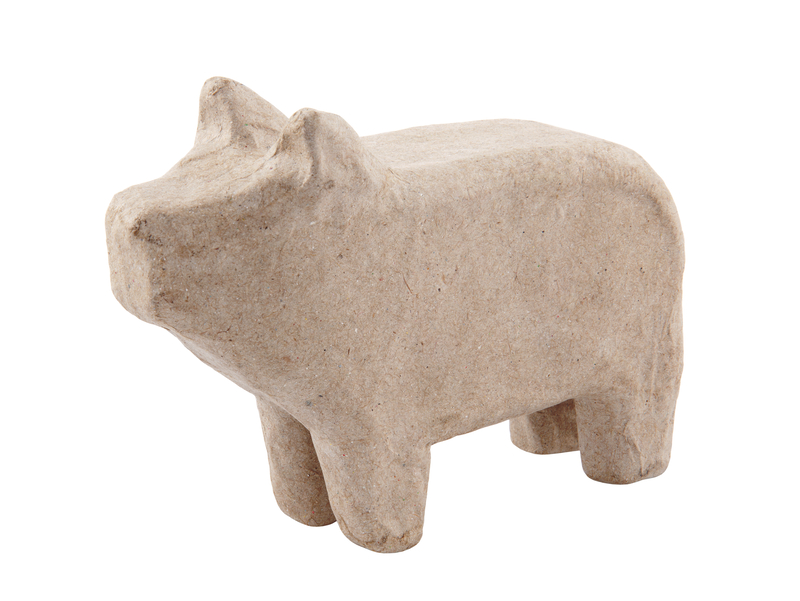Maximize Savings When Disposing of Bulky Waste Items: A Complete Guide
Disposing of bulky waste items--such as old furniture, mattresses, appliances, and renovation debris--can be a headache, especially when trying to minimize costs and reduce your environmental footprint. Whether you're clearing out an attic, moving, or tackling a major remodel, finding the most cost-effective and responsible solution for bulky item removal is critical. This comprehensive article will teach you how to maximize savings when disposing of bulky waste items, giving you actionable advice, strategic tips, and money-saving resources.
Understanding Bulky Waste: What Qualifies as Bulky Items?
Before diving into ways to save money on bulky waste disposal, it's vital to know what constitutes "bulky waste." Most municipalities, junk removal services, and recycling programs classify the following as bulky waste:
- Large furniture items: sofas, couches, wardrobes, beds, tables, chairs
- Household appliances: refrigerators, ovens, washing machines, dishwashers, microwaves
- Mattresses and box springs
- Large electronics: TVs, monitors, computer towers
- Carpets and rugs
- Renovation or construction debris: doors, windows, bathtubs, sinks, cabinets
When these items outlive their usefulness or no longer fit the needs of your home or business, effective and cost-efficient disposal becomes a priority.

Why Bulky Waste Disposal Is Expensive
It's no secret--disposing of large items can be costly. There are several reasons for this:
- They usually cannot be collected by regular curbside garbage pickup.
- Bulky waste often requires special handling, transportation, and sometimes, hazardous material processing.
- Landfills and local governments often charge additional fees for oversized items to account for increased labor and environmental considerations.
However, with some research and strategic planning, you can maximize your savings when disposing of bulky waste items. The following sections outline practical, tried-and-true methods to help you reduce your removal costs.
The Most Economical Ways to Dispose of Bulky Waste Items
Optimizing your bulky waste disposal process involves leveraging free or low-cost options before resorting to expensive hauling or landfill solutions. Here's how you can do it:
1. Sell or Give Away Unwanted Items
- Online Marketplaces: Many people look for used furniture or appliances on platforms such as Craigslist, Facebook Marketplace, Nextdoor, OfferUp, or Freecycle. If your item is still in decent shape, you might even make a little money or, at the very least, have someone haul it away for free.
- Garage Sales: Host a yard sale to part with multiple items at once. This not only reduces removal costs but can net you extra cash.
- Donation Centers: Many charities accept bulky items for reuse. Organizations such as Goodwill, The Salvation Army, and Habitat for Humanity ReStores may offer free pickup for qualifying donations.
Tip: Make sure to contact organizations first for their current policies. Some only accept items in clean, working condition.
2. Check Your Local Municipality's Bulky Waste Program
Many cities and towns offer scheduled bulky item pickups as part of regular waste management services. Sometimes, these pickups are free or low-cost, especially for residents. Here's how to maximize your savings:
- Visit your local government's website or call the waste management office to learn about scheduled pick-up days, fees, and regulations.
- Place your items curbside according to guidelines to avoid fines or missed pickups.
Tip: Some municipalities offer an annual "large trash day" where you can dispose of bulky items for free.
3. Leverage Retailer and Manufacturer Take-Back Programs
When buying new furniture or appliances, ask if the retailer offers a removal and recycling service with your purchase. Major chains often provide this as part of delivery or for a nominal extra fee. Some manufacturers also have take-back programs to ensure responsible recycling of old goods.
- Appliance stores: Many stores will remove your old appliance upon delivery of the new one, sometimes at no extra charge.
- Mattress retailers: Disposal of your old mattress might be included with your purchase.
Tip: Inquire about these services before you buy--it's a simple way to minimize bulky waste disposal costs.
4. Recycle Whenever Possible
Recycling is not only environmentally responsible, it can also help you maximize your savings when getting rid of bulky waste items. Many cities have recycling depots, eco-centers, or special drop-off days for large items like appliances (also called "white goods"), electronics, and scrap metal.
- Contact your local recycling center for their accepted items list and associated fees (if any).
- Some metal recyclers may pay you for scrap metal from old appliances or furniture.
- Electronics recycling programs ensure old TVs and computers are disposed of safely, sometimes at no cost.
5. Share Disposal Costs with Neighbors
If you and your neighbors all need bulky waste removal at the same time, consider pooling resources.
- Rent a dumpster together: Split the cost and fill up one large container.
- Group junk hauling services: Some companies offer discounts for multiple pickups in the same area.
This collaborative approach reduces individual costs and is more efficient for service providers, too.
6. DIY Haul to Local Disposal Facilities
If you own or can borrow a truck, self-hauling saves money--especially for short distances. Local dumps, transfer stations, and recycling centers typically charge by weight or item, which is cheaper than full-service junk removal.
- Research local facility fees before loading up.
- Bring proof of residency, as some facilities only accept waste from locals at reduced rates.
Tip: Make sure to separate recyclables and hazardous materials to avoid contamination fees.
7. Hire a Cost-Effective Junk Removal Company--But Shop Around!
Sometimes, bulky waste is too heavy, awkward, or numerous for DIY disposal. If hiring a removal company is necessary, compare at least 3-4 quotes for the best savings.
- Ask about volume-based or flat-rate pricing. If you have multiple bulky items, volume pricing is typically more affordable.
- Request discounts. Some companies offer special rates for seniors, veterans, or multi-item removals.
- Check reviews. Low price isn't a saving if the company leaves a mess or damages property!
Never pay in full upfront, and confirm what's included--like disposal fees or labor--before booking.
Tips to Keep Costs Low and Value High
Prepare Items in Advance
- Disassemble furniture where possible. Smaller pieces are easier (and cheaper) to haul.
- Remove doors or shelves from appliances to reduce weight.
Preparation can cut down on labor charges and maximize load capacity when self-hauling.
Know What's Free and What's Not
- Ask about "hidden fees." Surcharges may apply for stairs, oversized items, or hazardous materials.
- Understand local dumping policies--illegally dumped items can result in hefty fines.
Avoid Peak Times
- Schedule disposal during off-peak seasons (not during citywide cleanup weeks or holiday moves) for lower rates and better service.
Eco-Friendly Disposal: Saving Money--and the Planet
Maximizing savings when disposing of bulky waste items isn't just about keeping cash in your pocket--it's also about sustainability. Eco-friendly disposal methods reduce landfill contributions and support a circular economy. Here are green disposal tips:
- Donate before you dump: Many items have life left--give them a second home through local charities or nonprofit pickup programs.
- Repurpose or upcycle: Get creative and turn that old door into a headboard or table.
- Choose certified recyclers: Especially for electronics, ensure responsible processing and data destruction.
Responsible disposal can sometimes lead to tax write-offs for donated goods--more savings for you!

Frequently Asked Questions About Bulky Waste Disposal
Can I leave bulky waste items at the curb for regular trash pickup?
Usually, regular curbside collection excludes large or heavy items. Leaving bulky waste at the curb without prior arrangement may result in fines or non-collection.
Are there free options for bulky waste disposal?
Yes! Many cities have free bulk waste pickup days, and you can often dispose of items for free via donation centers or by giving them away online.
What if my bulky waste is hazardous or electronic?
Electronics and hazardous materials (paint, chemicals, certain appliances) require special recycling. Many areas host e-waste or hazardous waste drop-off events. Never send these to a landfill.
How can I cut down on bulky waste during home renovations?
Reuse existing materials where possible, donate usable items, and recycle construction debris through specialized centers. Request only necessary materials to avoid excess waste.
Conclusion: Saving Money with Smart Bulky Waste Removal Choices
Disposing of large household or office items doesn't have to empty your bank account. By selling, donating, recycling, pooling resources, and shopping around for disposal services, you can maximize savings when disposing of bulky waste items--while protecting the environment. Start by evaluating your options, prepare items for removal, and take advantage of community resources. With a little planning and these practical tips, you'll clear your space and save money in the process.
Remember, saving money and safeguarding the planet go hand-in-hand. Make your bulky waste disposal eco-friendly and affordable today!
